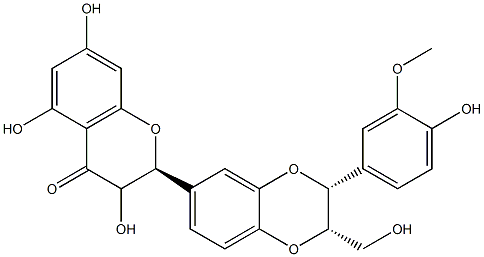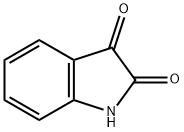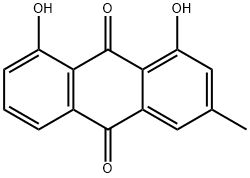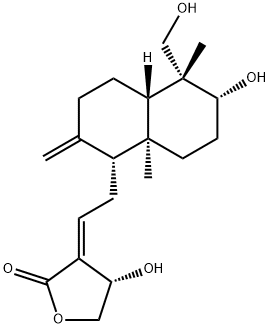Milk thistle
- Molecular Weight: 0
- Update Date: 2024-04-09 13:45:59
What is Milk thistle ?
Description
Thistle, weedy species of Cirsium, Carduus, Echinops, Sonchus, and other plant genera of the family Asteraceae. The word thistle most often refers to prickly-leaved species of Carduus and Cirsium, which have dense heads of small, usually pink or purple flowers. Plants of the genus Carduus, sometimes called plumeless thistles, have spiny stems and flower heads without ray flowers.
Milk thistle is native to Europe and was introduced into North America by early colonists. Milk thistle is found throughout the eastern United States, California, South America, Africa, Australia, and Asia. The terms “milk thistle” and “silymarin” are often used interchangeably. Milk thistle is a plant named for the white veins on its large prickly leaves. Shiny green leaves have distinct white marbling patterns, with spines on leaf edges and stems. In April-October, pink-purple flower heads, with broad, spiny bracts at their bases, appear singly at stem ends. Reproduces via seeds that persist in soil at least 9 years.Historically, people have used milk thistle for liver disorders and gallbladder problems. Milk thistle is promoted as a dietary supplement for hepatitis, cirrhosis, jaundice, diabetes, indigestion, and other conditions.

Benefits
Milk thistle (Silybum marianum) has been used for 2,000 years as an herbal remedy for a variety of ailments, particularly liver, kidney, and gall bladder problems. Several scientific studies suggest that substances in milk thistle (especially a flavonoid called silymarin) protect the liver from toxins, including certain drugs, such as acetaminophen (Tylenol), which can cause liver damage in high doses. Silymarin has antioxidant and anti-inflammatory properties. And it may help the liver repair itself by growing new cells. Although a number of animal studies demonstrate that milk thistle can be helpful in protecting the liver, results in human studies are mixed.
Side Effects
Taken in appropriate doses, oral use of milk thistle appears to be safe. Milk thistle can cause: Gastrointestinal issues, such as diarrhea, constipation, nausea, vomiting and abdominal bloating; Itchiness; Headache
If you have diabetes, use milk thistle with caution, since the supplement might lower blood sugar. There is also concern that milk thistle might affect estrogen levels. If you have breast cancer, uterine cancer, ovarian cancer, endometriosis or uterine fibroids, consider avoiding milk thistle.
Milk thistle can cause an allergic reaction, including a severe, potentially life-threatening allergic reaction (anaphylaxis). An allergic reaction is more common in people who are allergic to other plants in the Asteraceae family, such as ragweed, daisies, marigolds and chrysanthemums.
Safety information for Milk thistle
New Products
(R)-1-Boc-3-hydroxypyrrolidine Methyl (R)-1-Boc-4,4-difluoropyrrolidine-2-carboxylate 2,2-Difluoropropylamine hydrochloride tert-butyl 3-bromoazetidine-1-carboxylate DIFLUOROACETIC ANHYDRIDE 2,2-Difluoropropionic acid Diallylamine, 99% Calcium hydroxide, 95% Aluminum oxide, basic 2-Bromophenylacetonitrile, 97% L-tert-Leucine,97% N-Hydroxy-2-methylpropanimidamide 4-(3,4-Dichlorophenyl)-3,4-Dihydro-N-Methyl-1-(2H)-Naphthalenimine (Schiff Base) 2-AMINO-3,5-DIBROMO BENZALDEHYDE [ADBA] L-Glutamic Acid Dimethyl Ester Hcl 10-Methoxy-5H-dibenz[b,f]azepine 5-Cyanophthalide N, N-Carbonyldiimidazole (CDI) Dibenzoyl Peroxide Titanium Dioxide 2-(Methylthio) Benzonitrile Sodium Acetate Anhydrous Allopurinol 1,5-DibromopentaneRelated products of tetrahydrofuran








You may like
-
![Cis-2-(Bromomethyl)-2-(2,4-Dichlorophenyl)-1,3-Dioxolane-4-Ylmethyl Benzoate [CBB] 61397-56-6 99%](https://img.chemicalbook.in//Content/image/CP5.jpg) Cis-2-(Bromomethyl)-2-(2,4-Dichlorophenyl)-1,3-Dioxolane-4-Ylmethyl Benzoate [CBB] 61397-56-6 99%View Details
Cis-2-(Bromomethyl)-2-(2,4-Dichlorophenyl)-1,3-Dioxolane-4-Ylmethyl Benzoate [CBB] 61397-56-6 99%View Details
61397-56-6 -
 287930-77-2 / 142569-70-8 99%View Details
287930-77-2 / 142569-70-8 99%View Details
287930-77-2 / 142569-70-8 -
![2033-24-1 2,2-Dimethyl-1,3-Dioxane-4,6-Dione [Meldrum Acid] 98%](https://img.chemicalbook.in//Content/image/CP5.jpg) 2033-24-1 2,2-Dimethyl-1,3-Dioxane-4,6-Dione [Meldrum Acid] 98%View Details
2033-24-1 2,2-Dimethyl-1,3-Dioxane-4,6-Dione [Meldrum Acid] 98%View Details
2033-24-1 -
 Ethyl-2-Chloroacetoacetate 609-15-4View Details
Ethyl-2-Chloroacetoacetate 609-15-4View Details
609-15-4 -
 CIS- BROMO BENZOATEView Details
CIS- BROMO BENZOATEView Details
61397-56-6 -
 609-15-4View Details
609-15-4View Details
609-15-4 -
![1-(6-Methylpyridin-3-Yl)-2-[4-(Methylsulfonyl)Phenyl]Ethanone [Ketosulfone] 99%](https://img.chemicalbook.in//Content/image/CP5.jpg) 1-(6-Methylpyridin-3-Yl)-2-[4-(Methylsulfonyl)Phenyl]Ethanone [Ketosulfone] 99%View Details
1-(6-Methylpyridin-3-Yl)-2-[4-(Methylsulfonyl)Phenyl]Ethanone [Ketosulfone] 99%View Details
221615-75-4 -
 27143-07-3View Details
27143-07-3View Details
27143-07-3
